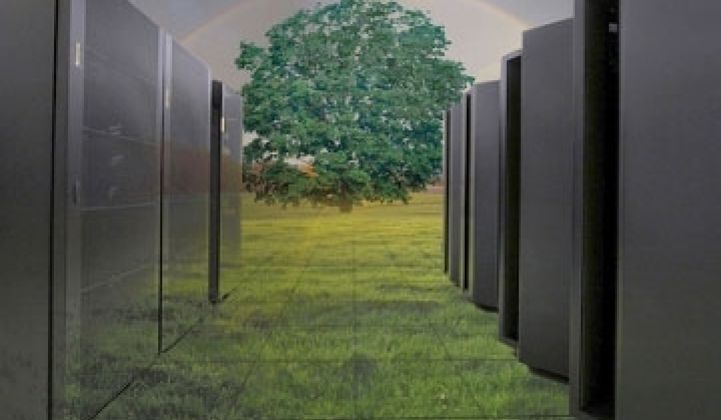Racktivity -- a startup that has devised a platform for monitoring power consumption in data centers a few thousand times a second -- has got some more money and will come to the States.
The company has raised $8 million in a second round, said CEO Marco DeMiroz, bringing the total raised to $10 million to date. The firm so far has deployed its software in Europe but will come to the U.S. in the first quarter of next year after completion of UL tests. Right now, it mostly sells its equipment in Europe.
Racktivity's primary product is its power distribution unit, a horizontal box that looks like a server and fits into a data center rack. The PDU effectively does what it says: it distributes power to other equipment in the nearby vicinity and monitors it. Distributed power distribution like this gives IT managers more fine-grained control over power consumption.
Technically speaking, computers and data centers are not huge problems when it comes to greenhouse gas emissions. Data centers account for only around 2 percent of the electricity consumed in the U.S., while computers account for only 4 percent of energy consumption in commercial buildings in the U.S., according to DOE statistics. Lighting accounts for 20 percent to 22 percent of the electricity consumed in the U.S.
Data centers, however, are expanding in size, and large web companies now fear that the need for power will outstrip their available supply. Waste and inefficiency remain rampant, too. Sentilla's Joe Polastre recently estimated that the top 40 commerce sites waste $100 million on their power bills alone in prepping for Cyber Monday. DeMiroz adds that Intel-based servers do save power while dropping into sleep mode, but the power consumption only really drops from 100 percent to around 84 percent.
Perhaps just as important, hardware and computer vendors have already latched onto the idea that energy efficiency will make their products more appealing. Desperate customers, savvy purveyors and technological solutions that can bring them together -- what more could you want from a breakfast cereal? Here's a host of reasons why green IT could become one of the more profitable cleantech markets.
Another interesting side-note is that Racktivity's execs are familiar with the mergers-and-acquisitions dance. Founder Kristof De Spiegeleer was the CTO at Q-Layer, which Sun Microsystems bought last year. He founded Datacenter Technologies, which Veritas bought in 2005, and Hostbasket, bought by Telenet in 2008. He also founded Dedigate, bought by Terremark in 2005 (Racktivity founder Wilbert Ingels came from Terremark). DeMiroz, meanwhile, served as a partner at Trinity Ventures.
Although most companies would rather pull off a public offering and become a brand-name entity, a larger number will end up as acquisition targets -- and an even larger number will end up on the scrap heap of history. As such, knowing how to orchestrate a takeover is a valuable skill.



